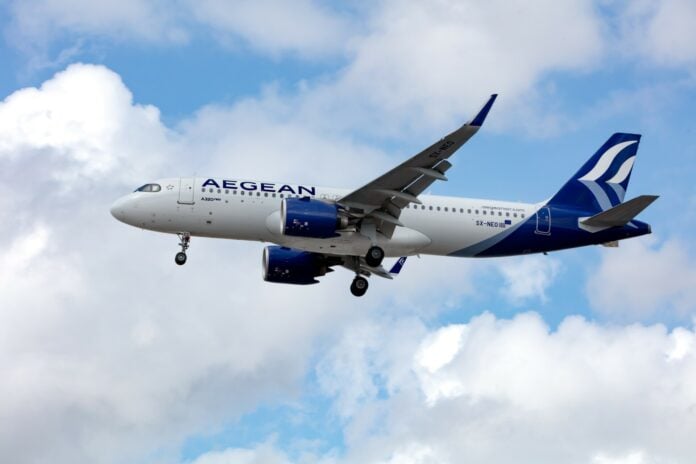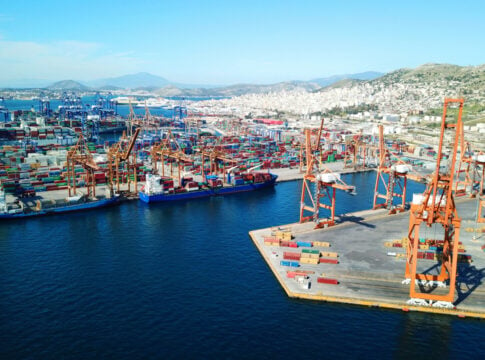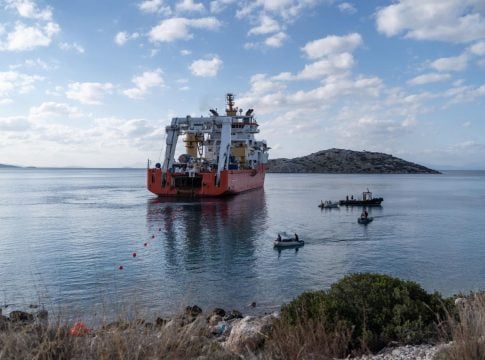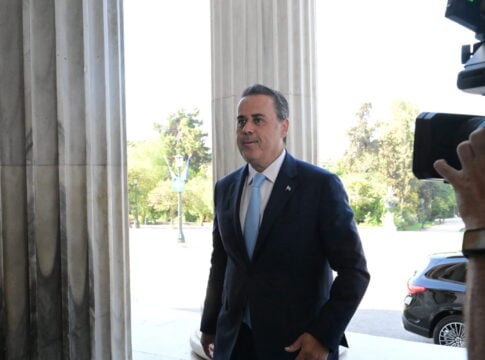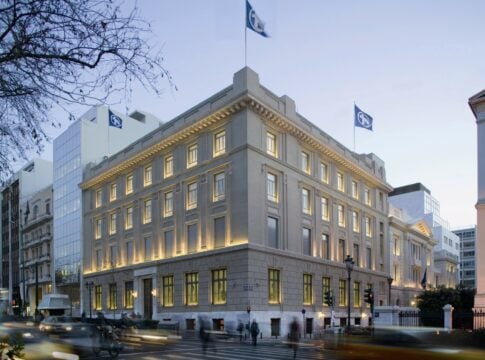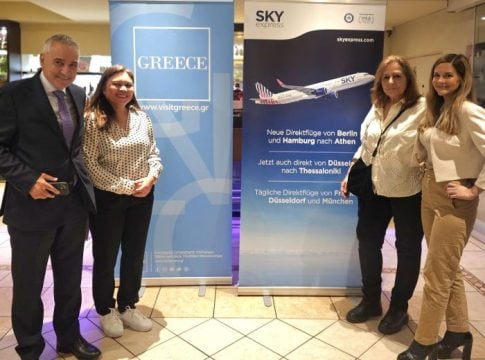Aegean Airlines announced an investment program totaling 4 billion euros to strengthen its fleet with 60 new Airbus A320/A321neo aircraft by 2031, aiming to enhance its transatlantic capabilities and expand into new markets.
The company confirmed that it will receive two A321neo XLR — long-range aircraft offering up to 10.5 hours of flight autonomy — in December 2025 and January 2026. These deliveries are part of the order for 60 aircraft, of which 36 have already been delivered.
First direct flights to India
The company will also launch direct flights to New Delhi and Mumbai from March 2026, making its strategic opening to the Indian market, which, according to the company, presents enormous growth potential.
The company is also considering the possibility of new long-haul destinations from 2027, such as Bangalore, Seychelles, Maldives, Nairobi, Almaty and Lagos, with possible seasonal adjustments to the schedule.
“These are special aircraft, with a high level of comfort and a differentiated travel experience, designed to serve destinations outside the EU with a flight duration of more than four hours,” the company said.
The cost
Aegean President Eftychios Vassilakis noted that the cost of the A321neo XLR is 35% higher than the regular 321neo, with the total cost of the aircraft ranging between 65-80 million per unit.
He pointed out that for the development of long-haul flights to be sustainable, state support is required in terms of infrastructure, visas and tourism strategy:
“Assistance is needed from the Ministries of Tourism and Foreign Affairs, as well as from the bodies that manage the airports and their services.”
Expansion in Technical Infrastructure and Human Capital
Aegean CEO Dimitris Gerogiannis presented the company’s plans for the development of maintenance and training facilities, emphasizing that in the very first year of the new facilities’ operation, the company carried out heavy maintenance for two of the three largest European airline groups. This year, one-third of the work is intended for third-party clients.
Aegean has also doubled its workforce over the past 10 years — from 1,878 employees in 2013 to 3,809 today — while also investing in scholarships for the next generation.
Challenges and prospects
Vassilakis acknowledged the geopolitical and economic challenges affecting the aviation industry, but stressed that the company has proven its resilience:
“Just as we managed to emerge stronger from the coronavirus crisis, we must be ready for the next challenges.”
Finally, he stressed that while tourism demand remains strong, growth rates are slowing, with infrastructure constraints at some airports amid the summer peak. Aegean’s strategy includes extending the season, adding new destinations and strengthening infrastructure.


